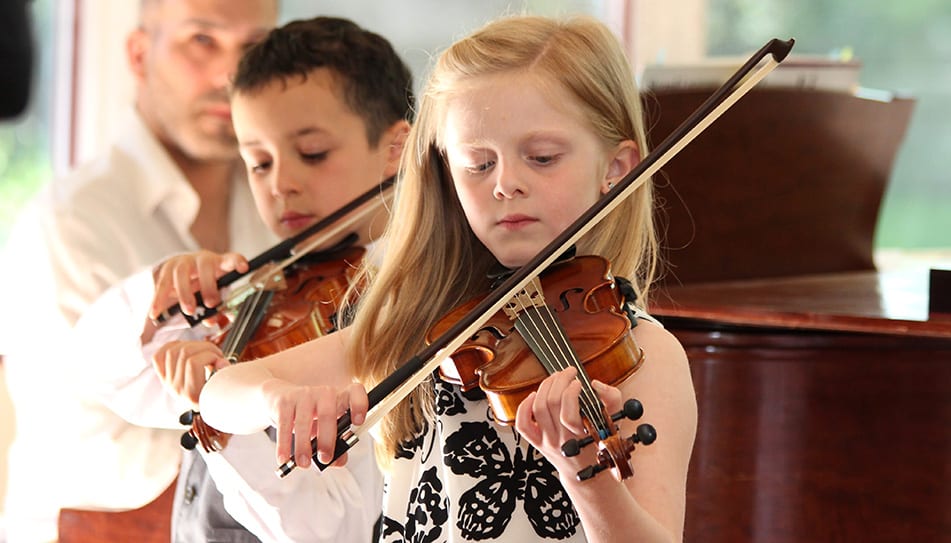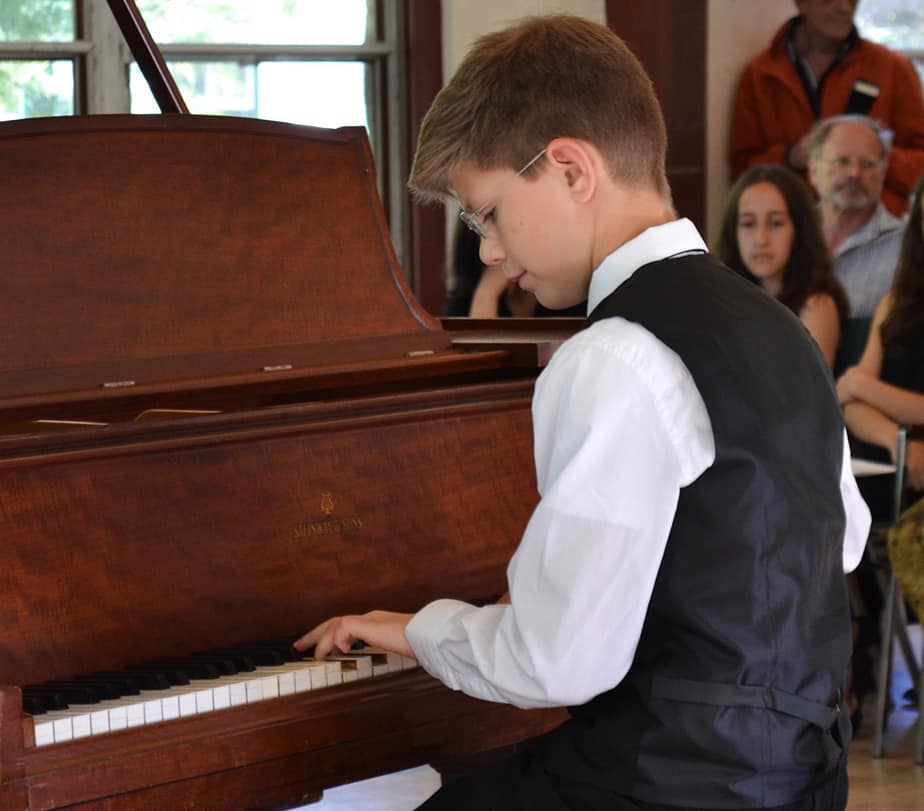THE SUZUKI APPROACH


Lessons are given to children individually in the studio, but preferably in a master class setting where they can watch others and in turn be observed by their peers. Students (and parents) grouped together share in each other’s successes and can help to encourage each other during slumps. In observing other students during their lesson times, learning is multiplied.
Group lessons are another important facet of the Suzuki method. This provides a pleasant way of reviewing technique and repertoire, a chance for the child to play with a group and follow a leader, a place to prepare in front of peers for solo recitals, stimulation through watching and listening to others with more advanced repertoire, opportunities to enrich music theory and ear training skills and of course, it gives the children a chance to interact with other young musicians who share some of their interests, creating a friendly musical community.
The Suzuki approach is similar to that of learning the mother tongue. A person is at their most malleable stage when they are young, therefore teaching music should begin as early as possible. A child of 3 may not progress as quickly as a child who begins at 13 years old, but will be more natural as they progress, just as a child will be better able to master a second language while they are younger. That being said, while 3 is better than 13, 103 is still better than 113! Tomorrow is too late, today is just right.

